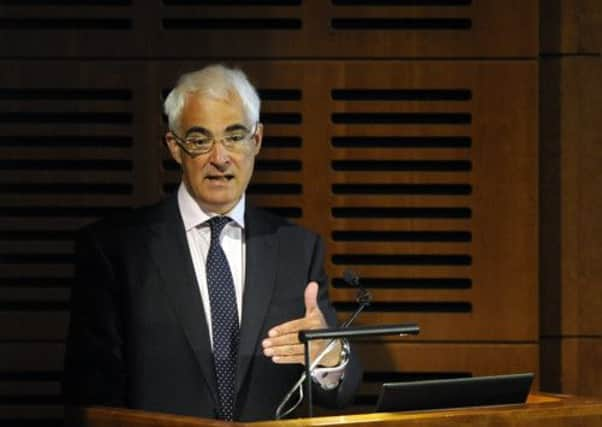Scottish Independence: ‘Most Scots are Brits too’


Former chancellor Alistair Darling will warn practical and economic arguments “do not make the whole case” for staying in the Union.
“Whether you feel English, Welsh, Northern Irish or Scottish first, you can be British too without contradiction,” he will say in a keynote speech at Glasgow University.
Advertisement
Hide AdAdvertisement
Hide AdMr Darling will call on Scots to “make a positive choice to remain part of the UK, and not merely to reject the risks and uncertainties of independence”.
He will add that positive choice is “as much a matter of the heart as well as the head”, telling the audience: “Choices about nationhood are not just hard-headed calculation. They involve sentiment and belonging.”
The Labour MP will highlight the importance of issues such as jobs, the economy, defence, public services and pensions in the run-up to the referendum, to be held on 18 September next year.
“The arguments for staying in the United Kingdom to protect and secure these interests are compelling,” the Better Together chairman will say.
Project Fear
Meanwhile SNP MSP Linda Fabiani called on Mr Darling to use his speech to “publicly withdraw the silly scares against independence deployed by his own campaign - which people inside the No campaign describe as ‘Project Fear’”.
She added: “In recent weeks, we have had arguments that even the deputy leader of the Scottish Tories has described as ‘silly’. And a former Labour first minister has said this week that the No campaign is Westminster-led and is treating people in Scotland like idiots.”
Ms Fabiani, a member of Holyrood’s Referendum Bill Committee, argued: “Next year’s referendum is about deciding what kind of Scotland we want to live in - a Yes vote means a fairer and more prosperous country with decisions taken by people living and working in Scotland. A No vote would mean that Scotland remained tied to a failing Westminster system.
“Having decisions about the economy, welfare and defence taken in an independent Scottish Parliament rather than by Westminster also means that Scotland will continue to share a social union and the bonds that connect us with the rest of the UK.
Advertisement
Hide AdAdvertisement
Hide Ad“Indeed, people in Scotland live, work and trade across a single European market of half-a-billion people - and the only threat to that comes from the Westminster referendum to exit Europe.
“Mr Darling doesn’t seem to understand what the referendum is about - it’s about democracy, not identity.
“We have a wide range of identities in modern Scotland - Scottish, British, Pakistani, Chinese, Polish, French, Irish and many, many more. Independence is the broad, inclusive and positive option for Scotland, in which all these identities can be reflected and celebrated.”